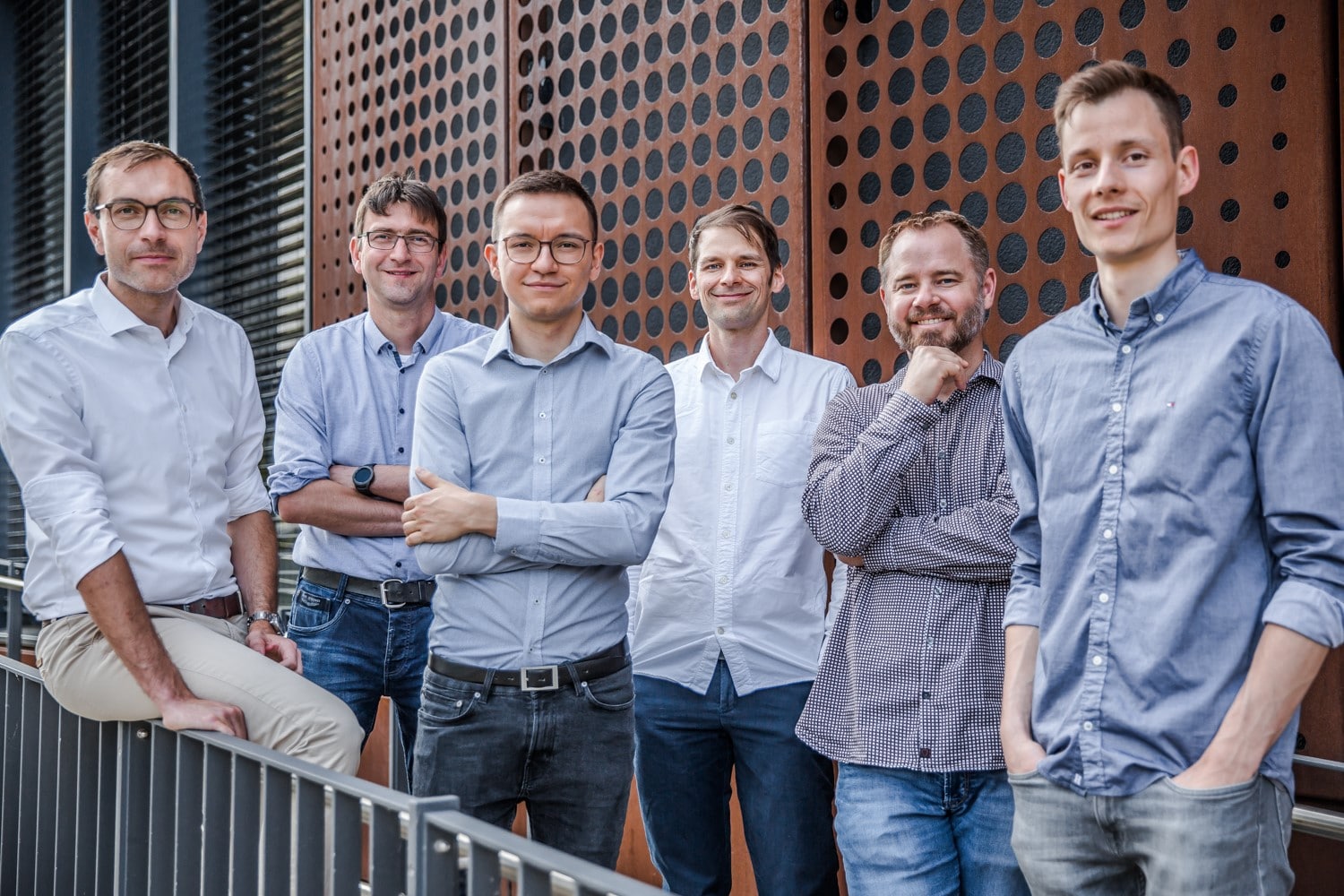
New investment:
volytica diagnostics GmbH puts vehicle batteries through the wringer
TGFS
06 August 2020
Advancing digitization is challenging Maslow’s well-known pyramid of needs: Whereas the basic pyramid layer was previously assigned primarily to physical needs such as eating or sleeping. The growing importance of electronic devices in our everyday lives means that power supply is also likely to be almost a basic need. In any case, a red battery charge indicator on the smartphone display seems to trigger greater discomfort than a feeling of hunger in many fellow human beings. The increasing spread of electric vehicles is once again raising dependence on a power source to a new level — after all, the state of charge of a battery determines whether we get from A to B (and thus, in case of doubt, to the next food source). However, reliable range prediction for vehicle batteries is made more difficult by the fact that the performance of any battery decreases with age. This is precisely where the young Dresden-based company volytica diagnostics GmbH (volytica for short), led by Claudius Jehle and Sebastian Stoll, comes in. The spinoff of the Fraunhofer Institute for Transportation and Infrastructure Systems IVI comes up with a self-developed technology that can determine the condition of a battery in real time. The company’s account has now been recharged by the Technologiegründerfonds Sachsen (TGFS), which together with the Fraunhofer Technologietransferfonds (FTTF) brought in fresh capital.
volytica’s broad business field covers a wide range of applications for Li-ion batteries. Among other things, the company is targeting the market for electrified commercial vehicles such as buses, trucks and trains. In doing so, the young high-tech company has its sights set specifically on battery system and vehicle manufacturers, who are caught in a tense relationship. On the one hand, producers of the actual battery cells often only grant short warranty periods. While on the other hand, buyers of e‑vehicles such as mobility providers expect a longer-term performance promise. With volytica, the wear and tear of a battery can be conveniently tracked via cloud-based software, enabling so-called „predictive maintenance“. For this purpose, various performance parameters are evaluated and graphically processed and made available to the customer via interfaces. The technology has been successfully used by well-known European customers for several years, so the foundation out of the Fraunhofer Institute was a logical step. The latest injection of capital is now intended to accelerate the development of the market. Co-founder Claudius Jehle explains what the new funds are specifically earmarked for: „We want to further professionalize and diversify the technology in order to fully exploit the commercialization potential. In terms of scalability, we want to serve even more customers as efficiently as possible. Our focus is: minimal entry hurdle for the customer, we provide immediate benefits!“ He says he has found TGFS to be a „pragmatic partner“ in the financing process. Claudius Jehle describes the cooperation as „uncomplicated, smooth, fast and always supportive.“
TGFS is particularly convinced by volytica’s go-to-market strategy. Tobias Voigt, Head of Startup Investments at TGFS, credits the company with nothing less than a pioneering role: „volytica has an innovative technology that has been developed to series maturity in the exciting market of e‑mobility. The targeted focus on optimizing the vehicle battery as a central component of the industry also holds the great opportunity to achieve important competitive advantages to sustainably establish volytica as a first mover in the non-car sector.“ Until now, the performance of vehicle batteries has been difficult to predict. Neither the external influences to which the battery is exposed in use nor their effects on the aging process can be accurately estimated. In order to meet the high customer expectations regarding availability, the batteries are therefore overdimensioned by the manufacturers as a preventive measure. With volytica, signs of wear can now be reconstructed and anticipated more accurately. This in turn enables manufacturers to install smaller batteries and thus save high costs. Up to now, the battery has accounted for up to 45% of the total cost of an electric vehicle. The data provided by volytica also promises economic advantages in the battery rental business and in the event of damage, when it reveals breaches of warranty conditions.
With its findings on the sensitivity of battery cells, volytica is closing a knowledge gap in the e‑mobility industry. Although vehicle batteries have been intensively researched in the laboratory for some time, there is a lack of empirical values for use under real conditions. After all, the first generation of e‑vehicles has only been on the roads for a few years. The Fraunhofer Institute for Transportation and Infrastructure Systems IVI developed the first electrically powered buses with industry partners more than 15 years ago and thus has comparatively extensive field experience. Claudius Jehle, who headed the research group for battery diagnostics at the institute for 6 years and is very well networked in the industry, also brings this experience with him. His colleague Sebastian Stoll contributes over 10 years of industry experience in cloud software development, which he was able to gather at renowned international companies. About volytica he says: „It was a conscious decision to found the company in Dresden. We believe in the location, where a lot of know-how has been built up. Dresden is a battery research hotspot. Thanks to the excellent university landscape, we can find highly qualified and capable young people here. Our goal is to be able to offer the young engineers a professional perspective in their home country.“ TGFS shares this claim unconditionally — another decisive reason for investing in the young company and thus creating the capital base for the new jobs.
Deal team TGFS
Christian Mordowicz and Tobias Voigt
The article was published by the MBG Sachsen — management partner in TGFS.
Bildquelle: volytica diagnostics GmbH